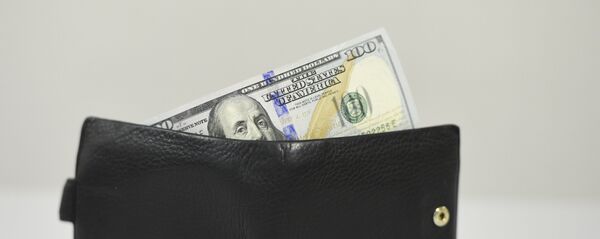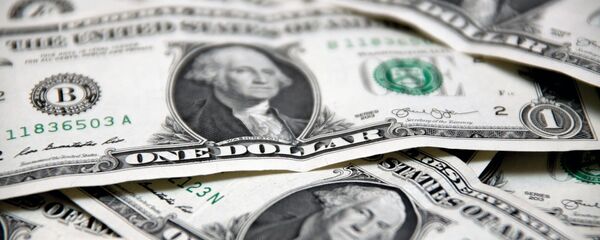Kristian Rouz – The US economy has demonstrated further signs of acceleration in August with consumers defying the rising borrowing costs projections and stagnant wages concerns, contributing to extended gains in the already-overpriced housing sector.
Steady increases in consumer spending are expected as the US comes out of the holiday season, however, downward pressures on the broader economy are still rife.
According to a report from the New York Conference Board, the US consumer Confidence Index rose to 122.9 in August from the revised downward reading of 120 the previous month.
Economic growth is poised to accelerate in the second half of the year from the second quarter reading of 2.6 percent, meaning the Trump administration’s near-term goal of a 3-4-percent annualized growth is within reach.
Stock market expansion also supports the rosy outlook for the broader economy, despite the fears of high stock valuations and possible asset bubbles. Generally, the current late-cycle expansion might prove toxic to the economy as affordability issues are weighing on household purchasing power.
The Conference Board’s report falls in line with other macroeconomic measures, with the University of Michigan’s consumer sentiment having posted a seven-month high in August, whilst the Bloomberg Consumer Comfort index rose to its 16-year-high in mid-August after six straight periods of gains.
“Today’s report suggests that household confidence remains on a strong footing, and we view this as constructive for consumer spending in Q3,” Michael Gapen of Barclays Plc in New York said.
A sell-off in US Treasury notes is also poised to bring the US national debt figure down, and rising yields will add upward pressure on borrowing costs, supporting President Trump’s economic reform agenda. The reforms, however, will likely be enforced early next year, after the White House sees more clarity on the Federal Reserve’s policy path.
“Consumers seem very confident in their ability to find a new job. They also are becoming more bullish on the outlook for stock prices even as the market holds near record highs,” John Ryding of New York-based RDQ Economics said. “The Fed has put significant weight on consumer confidence in forming its views on the economy and, from that perspective, this report supports further rate increases.”
Housing processes, however, are rising mostly to the restrained supply-side: the still-stagnant wages are not enough to boost the demand, but the excessive regulation in the construction sector is hampering the availability of homes. The Trump administration has yet to tackle these and many other supply-side implications, even though the White House’s deregulation efforts have started paying off.
“Tight market conditions will drive house prices higher over the remainder of the year, although cautious appraisals and tougher mortgage lending regulations will act to prevent a dangerous house price boom,” Matthew Pointon of new York-based Capital Economics said.
As for business conditions, Americans are less optimistic now, with only 19.6 percent of respondents expecting improvements in the next six months, down from 224 percent in July. Paradoxically, job market assessments somewhat contradict the upbeat Labor Department projections: the share of Americans expecting more jobs to appear in the next six months dropped to 17.1 percent from 18.5 percent.
Besides, less Americans are planning to buy a car or a home – mainly, due to already high household indebtedness, but more people are seeking to buy a major durable item, such as a washing machine.







